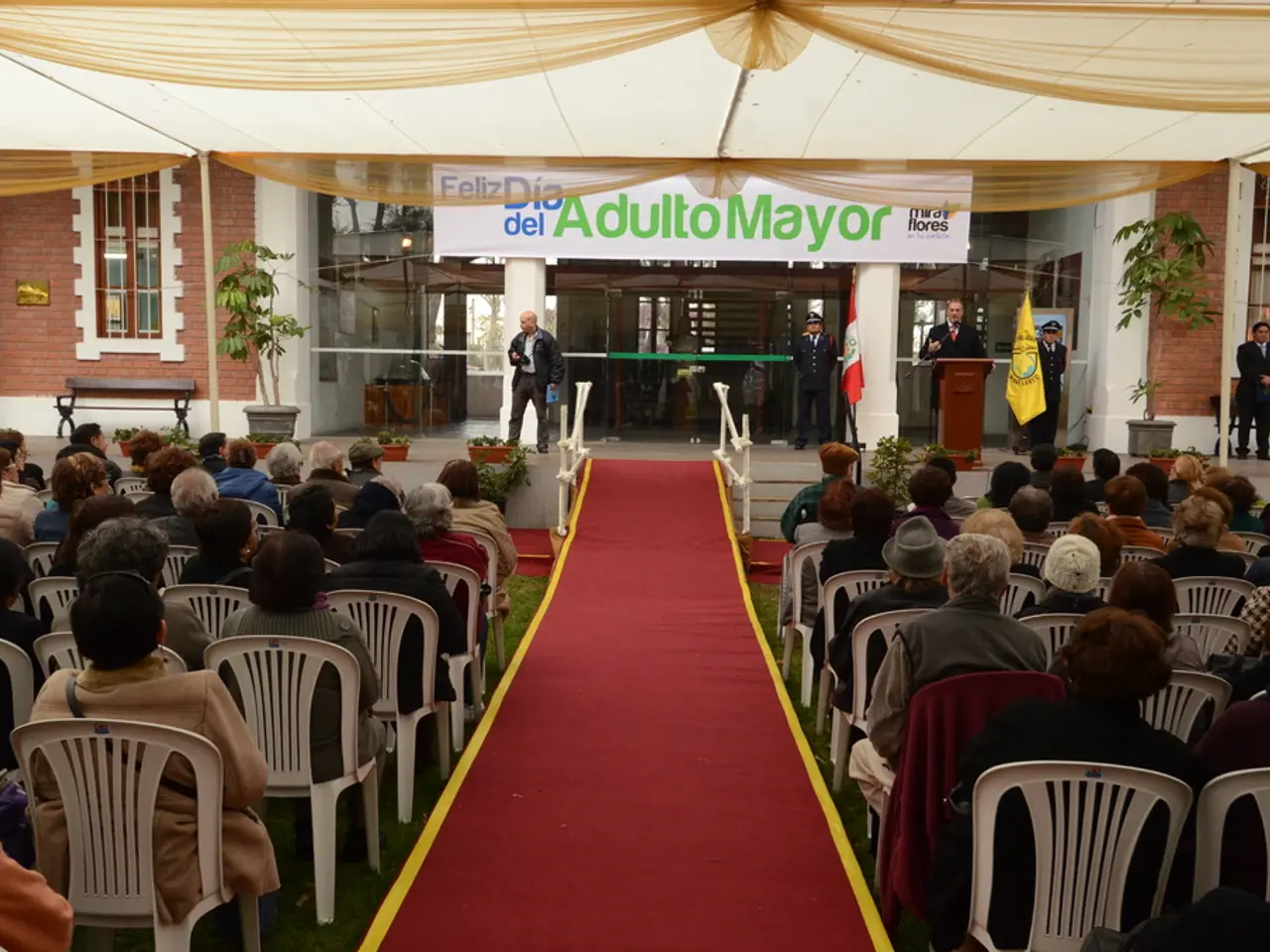Critics Roar over Skyrocketing MP Allowances in Saxony-Anhalt Parliament
Criticism Levied by Taxpayers Association Towards Diet Plus in State Legislature Severely - Criticism Mounts as Taxpayers' Association Slams Diet Plus in Landtag Assembly
The Taxpayers' Association has unleashed a fierce outburst against the substantial boost in MPs' allowances within the Saxony-Anhalt state parliament. "These excessive hikes pile on significant financial pressure for taxpayers," the association declared.
As of next month, MPs are poised to receive a substantial pay rise. Their monthly allowance will jump by over 450 euros to 8,736.66 euros, according to the state parliament administration. Compared to 2023, this translates to an increase of approximately 1,000 euros (7,797.69 euros). The tax-exempt living allowance will increase by 2.5 percent to 2,309.90 euros.
The association points out the glaring disparity between MPs and ordinary employees. "MPs' pension and unemployment insurance contributions are waived, creating an unfair advantage over the workforce," the criticism persists. Connecting allowances to the nominal wage index seems unfair given an ordinary employee's circumstances.
"Especially in times when budgets are tight, reviewing these generous allowances and abolishing the automatic increase is paramount," the Taxpayers' Association demands. The 2025 budget anticipates 23.1 million euros in expenses for active MPs - a hike of about three million euros compared to 2023. These costs account for allowances, employees' salaries, health insurance, and travel expenses.
Left Party Makes a Stand of Solidarity
In May, the Left Party pledged to donate their entire raise to a faction's solidarity fund. The money will be funneled to associations, clubs, kindergartens, after-school care facilities, and youth and leisure centers. A summer holiday recreation program totaling over 15,000 euros is planned. "In these challenging times, raising MPs' allowances is a misguided message to the hardworking people in the country who earn far too little," said faction leader Eva von Angern.
- Taxpayers' Association
- State Parliament
- Saxony-Anhalt
- Allowances
Behind the Move: A Broader Political and Economic Landscape
Saxony-Anhalt's MP allowances belong to broader political and economic developments in the region and the nation, but the specific historical trends and reasoning behind the allowance increases in Saxony-Anhalt's parliament are not fully detailed in the available data. However, insights can be derived from the larger context of political policies, regional disparities, and governance issues affecting the eastern German states.
Historical Trends and Justification for MPs' Allowance Increases in Saxony-Anhalt
- Saxony-Anhalt is one of Germany’s eastern territorial states, grappling with ongoing structural economic issues and efforts to level the playing field with western states post-reunification. Economic reports highlight that eastern states, including Saxony-Anhalt, face slower average earnings growth compared to western Germany[1][3][4].
- The parliamentary allowance increases in Saxony-Anhalt may be linked to adjustments addressing increased lawmaking responsibilities amid regional economic reforms and evolving social demands. The rises may also reflect inflation, cost-of-living adjustments, and efforts to make political roles more attractive relative to private-sector earnings, which generally lag in eastern states.
- The political landscape involves criticism and challenges from parties like Die Linke and AfD, which advocate for economic justice and social welfare, potentially influencing debates on MPs' salaries and allowances in Saxony-Anhalt[2].
Comparison with Average Earnings
- Average earnings in Saxony-Anhalt remain below the national average, reflecting economic inequalities stemming from post-reunification structural adjustments and slower industrial development in the east compared to western Germany[1][3].
- Given this wage disparity, scrutiny of MPs' allowance increases might be heightened locally, considering the salary gap between political compensation and average worker income. This is particularly pertinent in a state where economic equality issues and regional transformations remain topics of concern.
- While specific figures for MPs' allowance increases and average wages in Saxony-Anhalt are not provided in the accessible documents, the wider trend in eastern states is that public sector wages, including political remuneration, are adjusted to match local economic conditions while maintaining appropriate standards for public office obligations[1][3].
Snapshot
- MPs' allowances in Saxony-Anhalt have likely escalated over time in tandem with broader economic and political adjustments post-reunification, incorporating factors like inflation, regional economic needs, and political considerations.
- Justifications for the increase might encompass compensating for heavier workload, ensuring competitiveness in political remuneration, and addressing cost-of-living changes in the region.
- Comparatively, MPs’ allowances represent a considerable financial premium vis-à-vis average earnings in the state, given the general lower income levels in Saxony-Anhalt versus national averages.
- These trends manifest within a political context marked by debates on austerity, economic equality, and regional restructuring in eastern Germany[1][2][3].
For precise figures and detailed legislative history on Saxony-Anhalt MPs’ allowances, additional resources from state parliamentary records or regional government publications should be consulted.
- The Taxpayers' Association is concerned about the ongoing increase in MPs' allowances in Saxony-Anhalt's parliament, as these increases are happening during a time when budgets are tight and ordinary employees are struggling.
- The rise in MPs' allowances in Saxony-Anhalt may be connected to broader political and economic developments in the region, including increased lawmaking responsibilities, regional economic reforms, and efforts to make political roles more attractive relative to private-sector earnings.
- The Taxpayers' Association argues that budget allocations for MPs' allowances, as part of the 2025 budget, are excessive and need review, particularly given that these costs account for a significant portion of the state's expenses.




